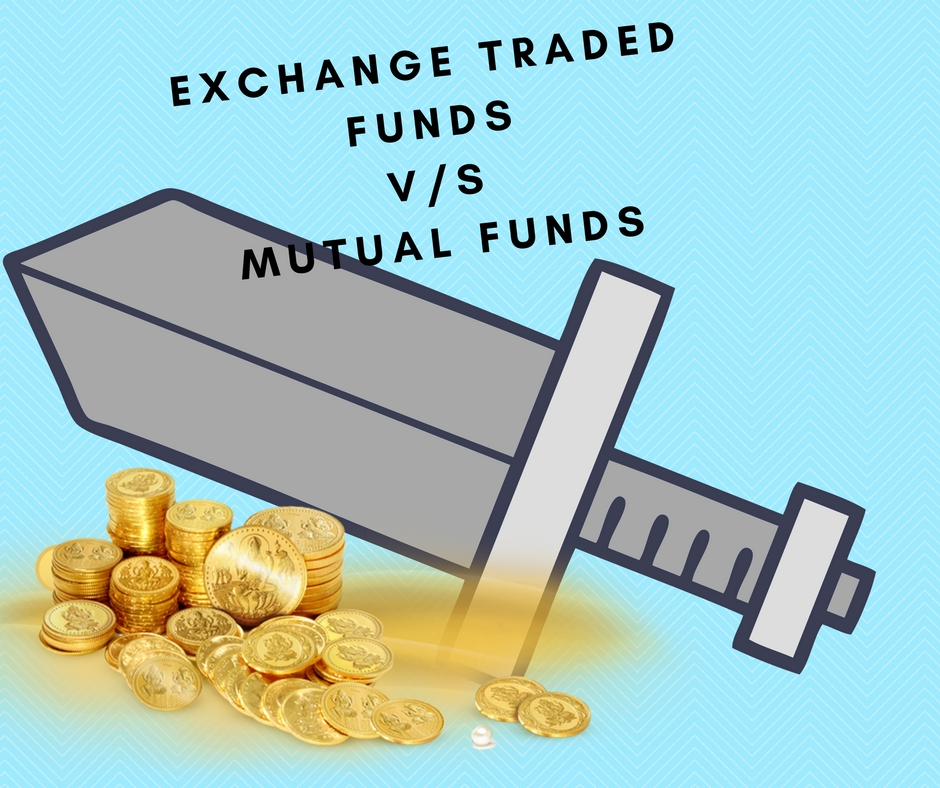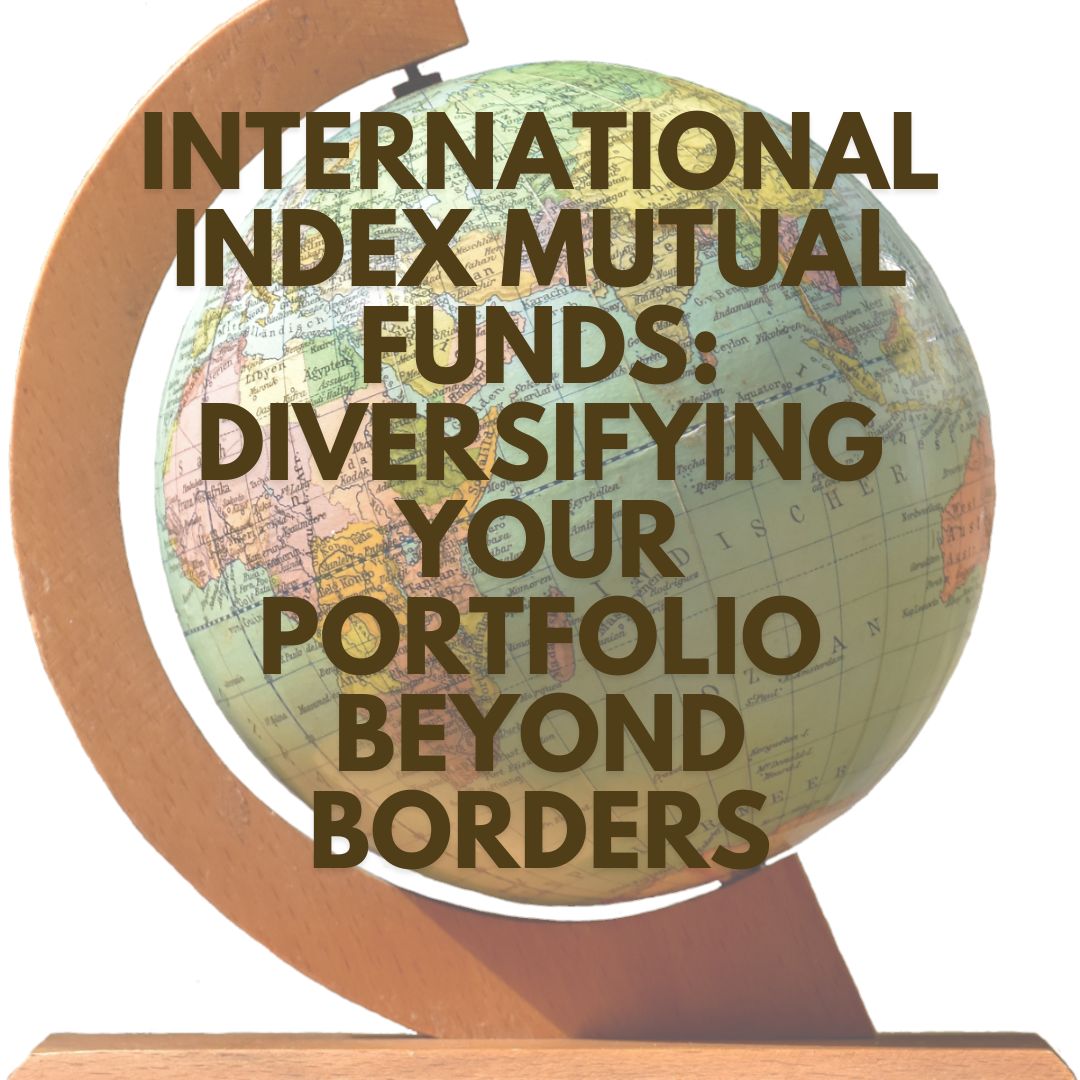ETF V/S Mutual Funds
- 17 December 2017 | 1255 Views | By Mint2Save

Often people confuse the Exchange Traded Funds (ETF’) and Mutual Funds (MF’s) to be the same thing or say two interchangeable terms but in reality, they are two very different things. Though, the two have many similarities also but they differ in many ways too. The decision regarding investment in a mutual fund or exchange–traded fund may seem like a petty consideration, but there are significant distinctions between the two types of funds. To get an in-depth into it let us first understand what they both are.
ELABORATE MEANING OF THE TERMS
ETFs and mutual funds both instruments bundle together varied securities to offer investors a well-diversified portfolio. Both products offer investors a way to pool their money in a fund and get returns on their investments. An ETF is a marketable security that tracks an index like NASDAQ-100 Index, S&P 500, Dow Jones, etc, commodity, bonds, or a basket of assets like an index fund. An ETF trades like an equity stock on a stock exchange. They experience price changes throughout the day as they are bought and sold in the market. A hot trending example of an ETF is the Bharat 22 ETF.
On the other hand a mutual fund is a financial instrument created out of money collected from various investors for the purpose of investing in various securities such as stocks, money market instruments, bonds and other assets. Professional managers, who allocate the fund’s investments and attempt to produce income for the fund’s investors, typically operate mutual funds. Now, let us understand the similarities and differences between these two.
SIMILARITIES BETWEEN THE TWO
- Both mutual funds and ETFs are a compilation of financial securities that provide exposure to a quantified segment of the stock market. In case of stocks, both mutual funds and ETFs contain a number of different securities that provide some diversification from the risks associated with investments in a single security.
- Furthermore, both these investment instruments provide a large degree of liquidity, which means giving the investors an option to convert their investments back into cash simply by selling their shares at the prevailing market price or net asset value (NAV).
- Mutual funds and ETFs are supervised by managers who decide which securities will be held or sold based on each fund’s investment strategy.
- Tax treatment: Both are subject to capital gains tax and taxation of dividend income. As far as taxation treatment is concerned, both an ETF and a mutual fund will be taxed similarly.
DIFFERENCES BETWEEN THE TWO
- One of the primary differences is that an ETF, trades throughout the day, the ETFs are priced in real time throughout the day, just like shares are traded on the stock exchange. ETFs are dealt openly on exchanges, where the bid-ask spread is publicly available and reflects current market sentiment. Purchase or sales orders for ETFs are executed immediately if they are submitted when the stock market is open and actively trading. On the contrary, mutual funds are priced only once a day, after the market has closed. While buying or selling mutual funds, investors are unaware of the executed share price until the market closes.
- ETFs can be traded constantly throughout the day on a stock exchange while the stock market is open at a price that can vary significantly from its net asset value. Mutual funds trade only at the NAV value calculated at the end of the trading day.
- ETFs are cheaper than mutual funds in terms of fees. As professional managers manage mutual funds, hence they charge a higher fee to professionally look after your investment. However, while investing in an ETF, an investor pays a commission to the broker. ETFs have no front-end or back-end loads unlike MFs.
- Most mutual funds also have minimum investment requirements, making them impractical for several smaller investors. In contrast, if investors prefer lower investment, they can purchase as little as only one share of the ETF of their choice.
- A mutual fund could be an appropriate investment if an investor wants to repeat specific transactions automatically. An investor can set up automatic re-investments and drawings in and out different mutual fund schemes based on their choices and preferences. In such a situation ETF wouldn’t be a suitable investment as automatic reinvestments are not possible.
- MF’s prefer to have dividends reinvested automatically, on the other hand ETF’s want to be able to review their holdings within the investment to help evaluate their current asset allocation.
Some prominent features of both are stated as under:
| Features | ETFs | Mutual Funds |
| Continuous trading through the trading day | Yes | No |
| Short selling and options available | Yes | No |
| Expense Ratio | Generally Lower | Generally Higher |
| Transparency | List of holdings generally published on a daily basis | List of holdings generally published on a quarterly basis |
| Diversification | Yes | Yes |
| Minimum investment | One share | Specified amount (As low as Rs. 500) |
CONCLUSION
ETFs and mutual funds, both allow investors to gain immediate financial exposure to any asset class. They tend to satisfy the diversification needs of any investor. As an aware investor it is important to know the differences between mutual funds and ETFs before making any investment decision. Both have their pros and cons and interest different set of investors.
ETFs are predominantly purchasing a basket of stocks with trading commissions, while a mutual fund has a professional manager who has the option of purchasing and selling different bundle of stocks using his unique trading strategies. Whichever investment vehicle an investor favors will depend on their risk tolerance capacity and their investment objectives.
Ultimately the question dawns upon as to which is a better choice for an investor for his/her investment portfolio? And the answer for this varies from person to person, if an investor is looking out for long-term investment, that is to say a buy-and-hold investor with little interest in trading, they would probably be fine with highly rated, no-load mutual funds held by a reputable fund manager since the ability to trade often and quickly is not a characteristic that is important to them. On the contrary, if an investor prefers to buy and sell more frequently, ETFs offer greater tradability, lower costs, diversification, and transparency and thus may work better for their objectives.









